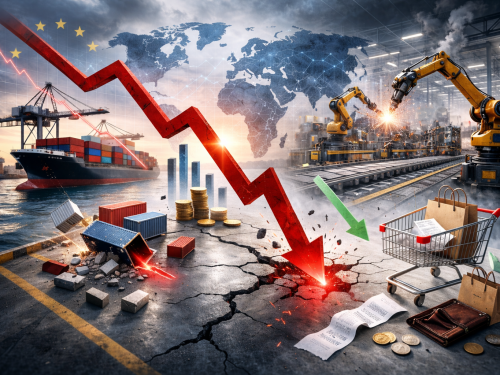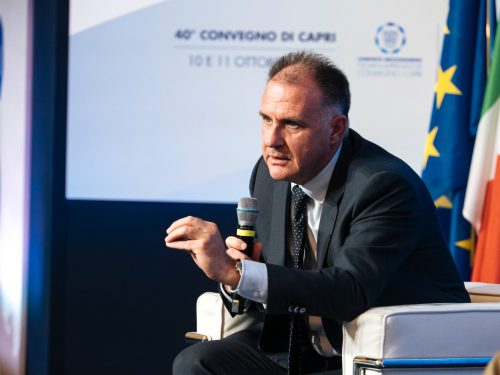News
Share on
"Tariffs are bad for Europe, but they are certainly not good for the US. We have to sit down at a table and focus on mutual interests: only then will a solution be found'. Thus Lucia Aleotti, Confindustria's vice president for the Study Centre, in an interview with Il Messaggerostressing that to sit at the table with Washington, Brussels must 'remove all those obstacles that destroy the competitiveness of its industries'.
According to Aleotti, there are many points of contact from which to avoid a trade war. 'The US is becoming an increasingly important partner of Europe on the energy front. Let us not forget the supplies to Italy, with American liquid gas helping to replace Russian gas. Not to mention that many of the sectors that could be subject to duties - beverages or pharmaceuticals - have a very high level of trade'.
However, in addition to the crucial issue of tariffs for Vice President Aleotti what is worrying is that 'there is a lack of common sense policy' at European level. "How can one think that increasing the burdens on European companies will make them more competitive? I make my own the concepts expressed by the president of Confindustria, Emanuele Orsini: in this Europe we have automotive fines that are truly senseless, we do not want to re-discuss the ban on endothermic engines and adopt a true technological neutrality, the ETS system instead of favouring decarbonisation is only pushing financial speculation'.
In short, for the VP, 'Brussels needs to make decisions quickly and change direction. Europe is already a continent where it is less and less convenient to invest: from 2019 to 2023, 150bn per year of foreign direct investment will 'fly away' to other destinations'. So the risk of our companies being pushed to relocate to America, "could be a reaction, but one that aggravates a trend that is already underway," Aleotti said.
In addition, for the vice president, it is necessary to understand 'what the decisions of the United States will be before quantifying the impact'. The areas most affected may be those with a strong surplus in the trade balance such as machinery, motor vehicles and other means of transport, pharmaceuticals or foodstuffs. "But, the Centro studi di Confindustria, in its report, also questioned the motivations and objectives that could push the US to increase duties. First of all, to bring some production back home; to lower the trade surplus in the sectors most exposed to the US; to defend its positions in strategic sectors'. Moreover, there is another aspect that we must not underestimate, reiterated Aleotti: 'direct investments by Italian companies in the US have exceeded 5bn, in the opposite direction 1.5bn. This is another strong signal of the interconnection between the two economies'.
"Before making any judgments, I would like to wait for events," concluded the Confindustria vice-president for the Study Centre. "Looking only at our country, there is a wide cooperation: Italy has a great manufacturing tradition, the US offers fabulous conditions in terms of research and development or finance.




